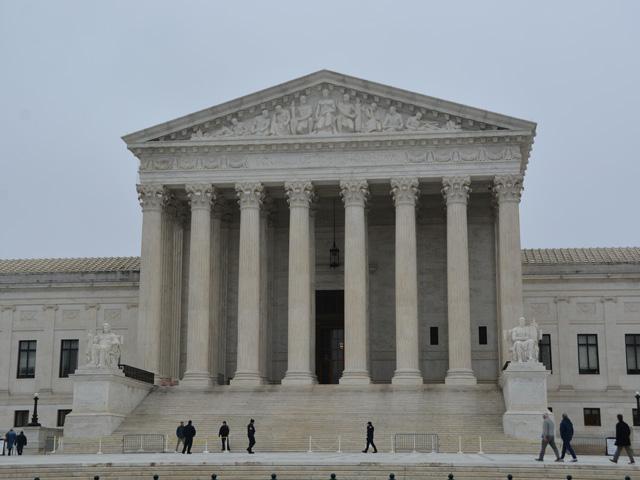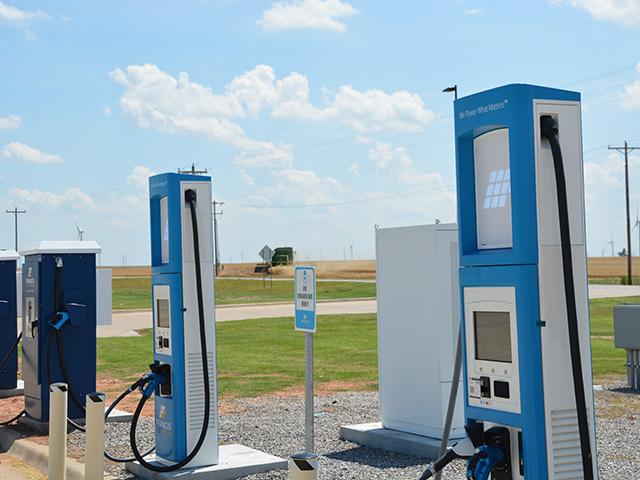Lawmakers Doubt Legality of eRINs Idea
House Republicans Tell EPA Head Regan eRINs Proposal May Not Follow Law
LINCOLN, Neb. (DTN) -- A group of federal lawmakers is raising questions about the legality of EPA's proposal to create a so-called electricity renewable identification numbers, or eRINs, program in the Renewable Fuel Standard.
As part of a multiyear RFS set proposal due for finalization in June, the EPA is seeking comment on the use of eRINs to incentivize the expansion of the electric vehicle industry as well as for electricity produced using biomass.
In a letter to EPA Administrator Michael Regan on Tuesday, 28 Republican members of the House Energy and Commerce Committee told Regan there are significant problems with the agency's approach to eRINs.
First, the agency never conducted a study required by the 2007 Energy Independence and Security Act, or EISA, on the feasibility of an eRINs program. Second, the lawmakers said the Clean Air Act does not list electric vehicle manufacturers as parties that can generate RINs.
The lawmakers told Regan the 2007 RFS was designed to encourage the use of certain blends of gasoline for vehicles.
"The RFS is intended to focus on liquid transportation fuels, and not to be used as a tool to electrify transportation," the letter said.
"However, EPA's proposed rule significantly changes how RINs would be addressed under the RFS program to allow for blended transportation fuel produced from renewable biomass to generate eRINs for electric vehicles. Under the proposed rule, the eRIN regulatory provisions would go into effect on Jan. 1, 2024, and apply to calendar years 2024 and 2025."
The lawmakers said the EPA is in violation of the EISA for not having conducted a study of how an eRINs program would affect the economy.
P[L1] D[0x0] M[300x250] OOP[F] ADUNIT[] T[]
"Section 206(b) of the Energy Independence and Security Act of 2007 included a provision that required the EPA administrator to conduct a study on 'the feasibility of issuing credits' for 'electric vehicles powered by electricity produced from renewable energy sources' within 18 months of enactment," the letter said.
"EPA has missed the statutory deadline by nearly 14 years, but now it is moving forward with the rulemaking without studying the feasibility or market impacts of establishing an entirely new RIN program that would be contrary to both the RFS' statutory language and the intent of Congress."
The letter is signed by Reps. Cathy McMorris Rodgers, chair of the committee; Bill Johnson, chair of the subcommittee on environment, manufacturing and critical materials; and Reps. Richard Hudson, Michael C. Burgess, Robert Latta, H. Morgan Griffith, Gus Bilirakis, Larry Bucshon, Tim Walberg, Earl Carter, Jeff Duncan, Gary Palmer, Neal Dunn, John Curtis, Debbie Lesko, Greg Pence, Dan Crenshaw, John Joyce, Kelly Armstrong, Randy Weber, Rick Allen, Troy Balderson, Russ Fulcher, August Pfluger, Diana Harshbarger, Mariannette Miller-Meeks, Kat Cammack and Jay Obernolte.
In particular, the lawmakers said, the RFS currently does not allow manufacturers of liquid-fuel vehicles to generate RINs or benefit from the RFS at all.
"Of concern, and unlike for liquid fuels vehicles, under the proposed rule, original equipment manufacturers of electric vehicles would generate RINs for light-duty vehicles," the letter said.
Electric vehicle manufacturers would then be responsible for "establishing contracts" with parties that produce electricity from qualifying biogas.
"However, under Clean Air Act section 211(o)(5)(A)(i), the authority to generate RINs under the RFS program is specifically given to 'any person that refines, blends, or imports gasoline that contains a quantity of renewable fuel greater than the quantity required,'" the letter said.
"The existing statute also includes an option for the generation of credits by small refineries, a term defined in Clean Air Act section 211(o)(1)(K) that means a refinery with a certain amount of 'daily crude oil throughput.' Nevertheless, OEMs of EVs are not listed as a party that can generate RINs, because they do not refine, blend, or import gasoline containing renewable fuel, nor do they maintain daily crude oil throughput."
The lawmakers said EPA was "disregarding existing statute" by allowing EV manufacturers to generate RINs.
The proposed rule also would allow renewable energy producers, public access charging stations, independent third parties and multiple parties to generate RINs.
"EPA noted that having one generator for RINs may help prevent double counting but a lack of certainty over program design in the proposed rule is troubling," the letter said. "Any changes to the RIN-generation structure should be accomplished through legislation rather than regulation without the proper statutory authority."
Under the proposal, compressed natural gas and liquefied natural gas derived from biogas and eRINs would be included in the cellulosic biofuel category of the RFS. The proposed rule sets maximum-production volume targets for eRINs at 600 million in 2024 and 1.2 billion RINs in 2025.
"Our goal is to ensure that all Americans have access to affordable, available, reliable and secure energy," the lawmaker said in the letter.
"The final design of the eRINs program under the RFS inserts uncertainty into the transportation fuels market. It could create new economic opportunities for parties that service the electricity distribution sector and certain renewable fuels producers, or it could create regulatory barriers that would negatively impact American companies and complicate consumers' ability to access the fuels they need for the lives they live."
The House members also asked Regan to answer a number of questions about the proposal: https://energycommerce.house.gov/….
Todd Neeley can be reached at todd.neeley@dtn.com
Follow him on Twitter @DTNeeley
(c) Copyright 2023 DTN, LLC. All rights reserved.




